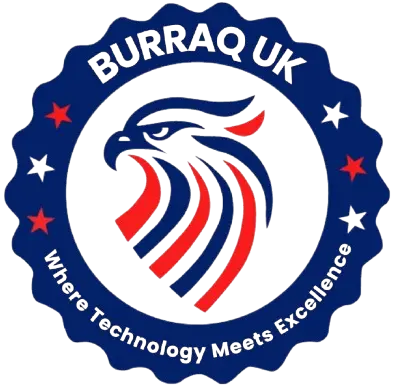Total Quality Management (TQM)
Total Quality Management (TQM) is a comprehensive management approach focused on continuous improvement of products, services, and processes by involving all employees at every level of an organization. The goal of TQM is to enhance customer satisfaction through systematic efforts to improve quality, reduce errors, and increase efficiency.
TQM emphasizes teamwork, effective communication, and a strong commitment to quality standards throughout the entire organization, from top management to front-line workers. By fostering a culture of quality, organizations can achieve better performance, reduce costs, and maintain a competitive edge in the market.

Aim of Total Quality Management (TQM)
The aim of Total Quality Management (TQM) is to achieve long-term success by delivering products and services that consistently meet or exceed customer expectations. This is accomplished through the active involvement of all employees in continuous quality improvement, fostering a culture of excellence, and implementing effective processes that enhance efficiency, reduce waste, and ensure customer satisfaction.
Course Overview
Total Quality Management (TQM)
Eligibility Criteria
- Educational Qualification:
- Minimum Matric / High School certificate or equivalent for basic/introductory courses
- For advanced or professional certifications, Intermediate (FSc/A-Levels) or a bachelor’s degree in any discipline may be required
- Professional Background:
- Open to fresh graduates, working professionals, managers, supervisors, quality control personnel, and anyone interested in quality improvement
- No specific background is mandatory, but familiarity with business or manufacturing processes is a plus
- Skills:
- Basic understanding of business operations or manufacturing
- Willingness to learn about quality principles and management systems
- Communication skills for teamwork and reporting
- Other Requirements:
- Some courses may require basic computer literacy
- For international or advanced certifications, some work experience in related fields may be preferred
| Course Code | Curriculum Title | Credit | DLH |
|---|---|---|---|
| BUK1488-1 | Introduction to Total Quality Management | 3 | 10 |
| BUK1488-2 | Principles of TQM | 3 | 10 |
| BUK1488-3 | Quality Planning and Assurance | 3 | 10 |
| BUK1488-4 | Quality Control Tools & Techniques | 3 | 10 |
| BUK1488-5 | Process Management | 3 | 10 |
| BUK1488-6 | Total Employee Involvement | 3 | 10 |
Module 1: Introduction to Surveying Software
- Introduction to Total Quality Management
- History and evolution of TQM
- Key definitions and concepts
- Importance of quality in modern organizations
- Principles of TQM
- Customer focus
- Continuous improvement (Kaizen)
- Employee involvement
- Process approach
- Fact-based decision making
- Quality Planning and Assurance
- Quality objectives and policies
- Quality planning process
- Assurance vs control
- Preventive vs corrective actions
- Quality Control Tools & Techniques
- Seven basic QC tools (e.g. histogram, cause-effect diagram, control charts, etc.)
- Statistical Process Control (SPC)
- Pareto analysis
- Process Management
- Process mapping and flowcharts
- Standard Operating Procedures (SOPs)
- Monitoring and improving processes
- Total Employee Involvement
- Teamwork and quality circles
- Role of leadership in TQM
- Employee training and motivation
- Customer Satisfaction & Feedback
- Voice of the Customer (VoC)
- Complaint handling
- Customer surveys and feedback analysis
- Continuous Improvement Strategies
- Kaizen
- PDCA Cycle (Plan-Do-Check-Act)
- Benchmarking
- Lean Management principles
- ISO Standards & Quality Certifications
- ISO 9001 and other related standards
- Internal and external audits
- Certification processes
- TQM Implementation and Case Studies
- How organizations implement TQM
- Success stories and failures
- Measuring TQM performance
- Students
- Fresh Graduates
- Working Professionals
- Quality Control / Quality Assurance Staff
- Managers & Administrators
- Entrepreneurs / Business Owners
- All Modules within this qualification are assessed internally by the approved training Centre and externally verified by BURRAQ UK. The program uses a criterion-referenced assessment approach to ensure that learners successfully meet all required learning outcomes.
- A Pass in any unit is granted only when the learner submits valid, reliable, and authentic evidence that demonstrates achievement of the assessment criteria. The Assessor is responsible for reviewing this evidence and confirming that the learner has attained the expected standard.
